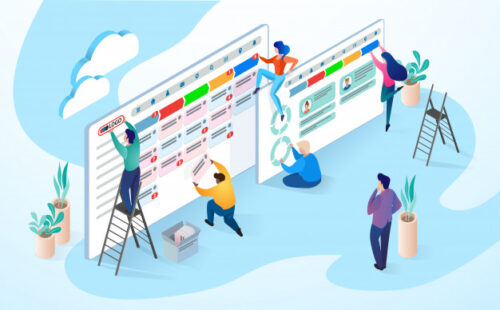A certain number of startups fail even after getting investments, for reasons related to software development. Often, they make incorrect assessments about the development, or the MVP doesn’t work the way they expect. And in the months before the new round and the crucial report to investors, everything needs to be redone. That’s why it’s so important to find a good initial team and carefully organize the development process. DigitalMara has collected some practical tips.
For startups, it’s crucial to stay within the available budget and timeframe, to be able to demonstrate specific, tangible results to investors. Building your team flexibly and using a properly selected tech stack ensures that you can allocate your budget efficiently and save resources when investment is limited.
A well-chosen team is the first step. But development isn’t just about implementing your basic ideas. You’ll need to consider many associated issues, such as, depending on the business domain, security standards and certificates, and killer features you’ll want to add to your software product. It’s essential to work together with your team on these crucial points and provide recommendations for possible improvements.
The Clutch report on outsourcing for small business offers the following key findings:
- Average spending on outsourced services in 2022 was $198 550.
- 52% of small businesses regularly apply to professional agencies for outsourcing.
- 96% of companies have plans to maintain or increase the number of staff in 2023.
- 83% of companies plan to maintain or increase their spending on outsourced business services in 2023.
Key factors for startups to consider when hiring developers
- Startups are not always able to compete with established companies in terms of working conditions. Often, developers who become part of the internal team get a share in the company.
- When there is a small pool of candidates to choose from, hiring becomes a tedious and expensive process. You may need to spend a lot of time finding the right person.
- When building a team, modern companies should adhere to principles of diversity, equity and inclusion. Developers with rich backgrounds and varied experiences have great potential and will bring more value to your project.
- In evaluating the candidacy of a particular developer, it is necessary to consider his or her technical skills and experience, problem-solving and communication skills, motivation, future growth potential, and more.
- Cultural fit is important for matching team members and can affect the progress of the project. Developers should align with the startup’s culture, values, and mission and also not have deep contradictions with other team members.
Why is outsourcing good for startups?
Startups tend to turn to outsourcing not only for software development, but design, SEO, digital marketing, content, accounting and other services. This provides an opportunity to assemble a high-class team, enhance processes, stay competitive and respond to business and market changes.
Outsourcing via agencies or freelancers is an optimal way to scale up fast, fill skills gaps and augment the current team for a reasonable price. It offers greater flexibility and scalability, as developers can be hired on a per-need basis.
Key benefits:
- Adjustable timeframes, as developers can be hired for weeks, not months;
- Easy access to the workforce, located anywhere;
- Organized workflow;
- Cutting some operational costs, such as recruitment, training, office space and equipment.
How to choose a vendor
Price plays a critical role when choosing a vendor, but it should be considered in conjunction with other factors, such as skills level and experience, location, English proficiency, and project duration. For example, Data Engineers and AI developers command higher rates. Language factors may influence communication, which can lead to errors and can slow down the project.
Here are some basic steps you should follow when choosing your outsourcing partner:
- Define your project requirements, including the scope, budget, and timeline.
- When researching potential companies, collect some primary information, such as the official name, date of founding, headquarters and development locations, number of employees, and contact person.
- Study their expertise, including certificates, technology stack and case studies.
- Check out references and reviews of each potential partner.
- Evaluate communication at the stage of preliminary negotiations, and also how project management and delivery are organized.
- Evaluate security and data protection measures companies are using and what international standards they are following.
Final words
For startups, the specifics of development include the need to quickly develop an MVP, test and refine it. Also, it’s crucial to prioritize and include in the first version functionality that really works and can impress potential investors and early users.
DigitalMara has vast experience working with startups, with our unique operating model that considers the interests of both our clients and investors. We work with projects for healthcare, finance, education, media, sports, ecology and self-service.
We can build together web and mobile apps, chatbots, analytics, AI and ML solutions, and payment gateways. The first-version MVP is delivered within 3 months and prototype in 1 month.


































